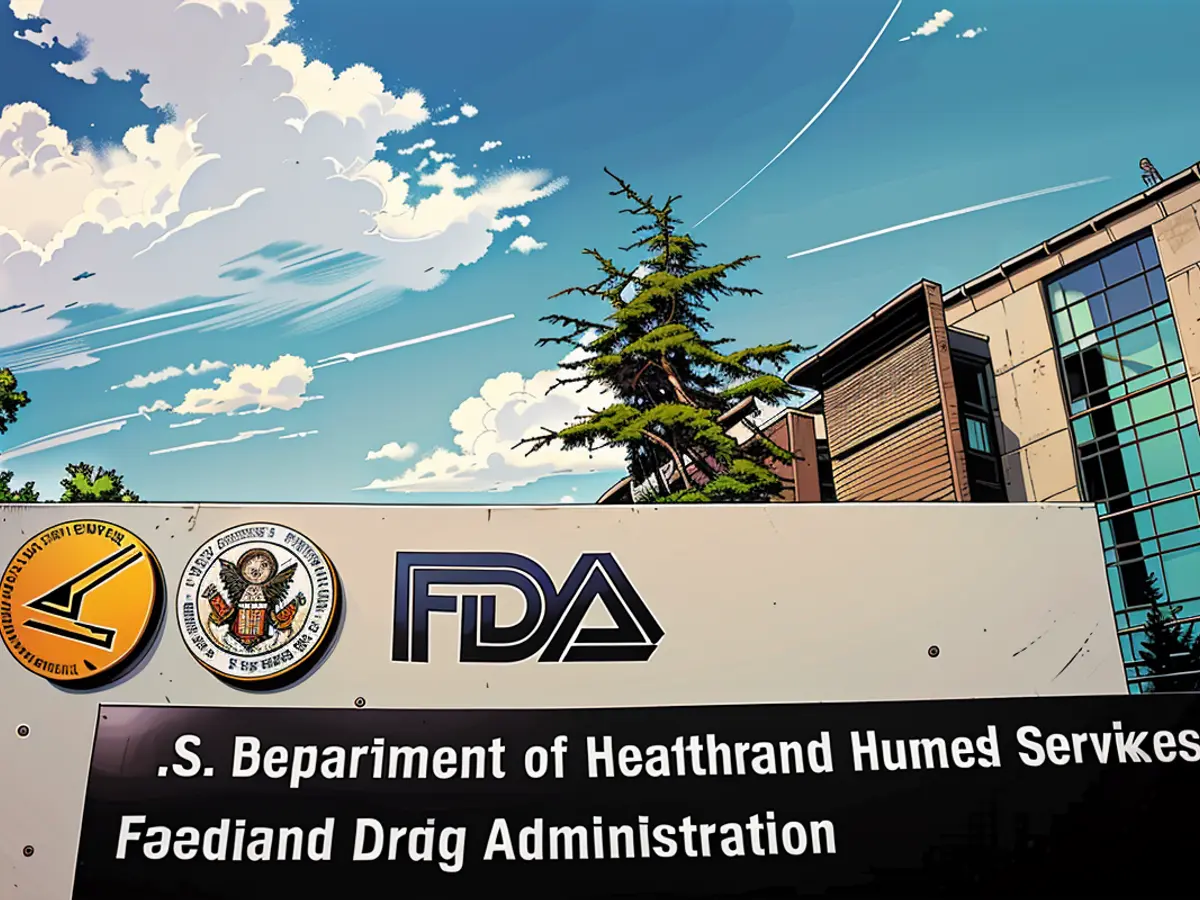First nasal spray epinephrine drug for emergency allergic reactions gets FDA approval
The drug, called Neffy, is cleared for adults and children who weigh more than 66 pounds, the agency said Friday in a news release. It’s administered as a single dose sprayed into one nostril. A second dose may be given if needed, similar to injectable epinephrine, the agency said.
Neffy uses the same spray device as Narcan, the naloxone nasal spray for opioid overdose, according to a spokesperson for its maker, ARS Pharmaceuticals.
“Anaphylaxis is life-threatening and some people, particularly children, may delay or avoid treatment due to fear of injections,” said Dr. Kelly Stone, associate director of the Division of Pulmonology, Allergy and Critical Care in the FDA’s Center for Drug Evaluation and Research. “The availability of epinephrine nasal spray may reduce barriers to rapid treatment of anaphylaxis.”
The approval was based on studies in 175 healthy adults measuring concentrations of epinephrine in the blood, which showed comparable levels for Neffy and injected epinephrine, as well as similar increases in blood pressure and heart rate. A study in children weighing more than 66 pounds found comparable epinephrine levels to those in adults.
Get CNN Health's weekly newsletter
- Sign up here to get The Results Are In with Dr. Sanjay Gupta every Tuesday from the CNN Health team.
The drug had been expected to be approved last year, but was delayed as the FDA sought more information about repeat dosing. The FDA said Friday that patients may need to seek emergency medical assistance for close monitoring after experiencing anaphylaxis, and in case further treatment is needed. It’s also recommended patients who get injectable epinephrine seek immediate emergency care.
The FDA noted people who have nasal conditions like nasal polyps or who have had nasal surgery may not absorb Neffy sufficiently and should talk with a health-care provider about whether an injectable epinephrine would be better for them.
The agency said the most common side effects of Neffy include throat irritation, tingling nose, headache, nasal discomfort and feeling jittery, among others.
Anaphylaxis is most often caused by reactions to medication, foods or insect stings, according to the American Academy of Allergy, Asthma and Immunology. Symptoms, which typically start within five to 30 minutes of contact with an allergen, include hives, swelling of the throat and other areas, wheezing and passing out.
“Anyone who has experienced or witnessed an anaphylaxis reaction knows it can be very stressful deciding when to inject epinephrine to themselves or a child and often delay,” Dr. Jonathan Spergel, chief of the allergy program at Children’s Hospital of Philadelphia, said in a news release from ARS Pharmaceuticals. “We know that earlier administration is better, and for many, the needle is a barrier that causes dangerous hesitation. That is why the field has long pursued an effective treatment approach that does not require an injection.”
ARS Pharmaceuticals didn’t disclose the list price of Neffy – how much it costs before insurance or other discounts – in its news release Friday. It said that for patients with commercial insurance that covers the drug, the price out of pocket would be no more than $25 for two single-use devices, via a co-pay program. For certain patients without insurance coverage or who face high out-of-pocket costs, the company said the price would be $199 for two doses of Neffy. For other patients who can’t afford the medicine, the company said it would provide Neffy for free.
The medicine is expected to be available in the United States within eight weeks, ARS said. The company also noted it plans to file for FDA approval of Neffy for children who weigh between 15 and 30 kg (33 to 66 pounds) by the end of the third quarter of this year, or before October.
CNN’s Jen Christensen contributed to this report.
The approval of Neffy can potentially reduce the barriers for individuals, particularly children, to quickly treat anaphylaxis due to the fear of injections. Anaphylaxis is often caused by reactions to medication, foods, or insect stings.








